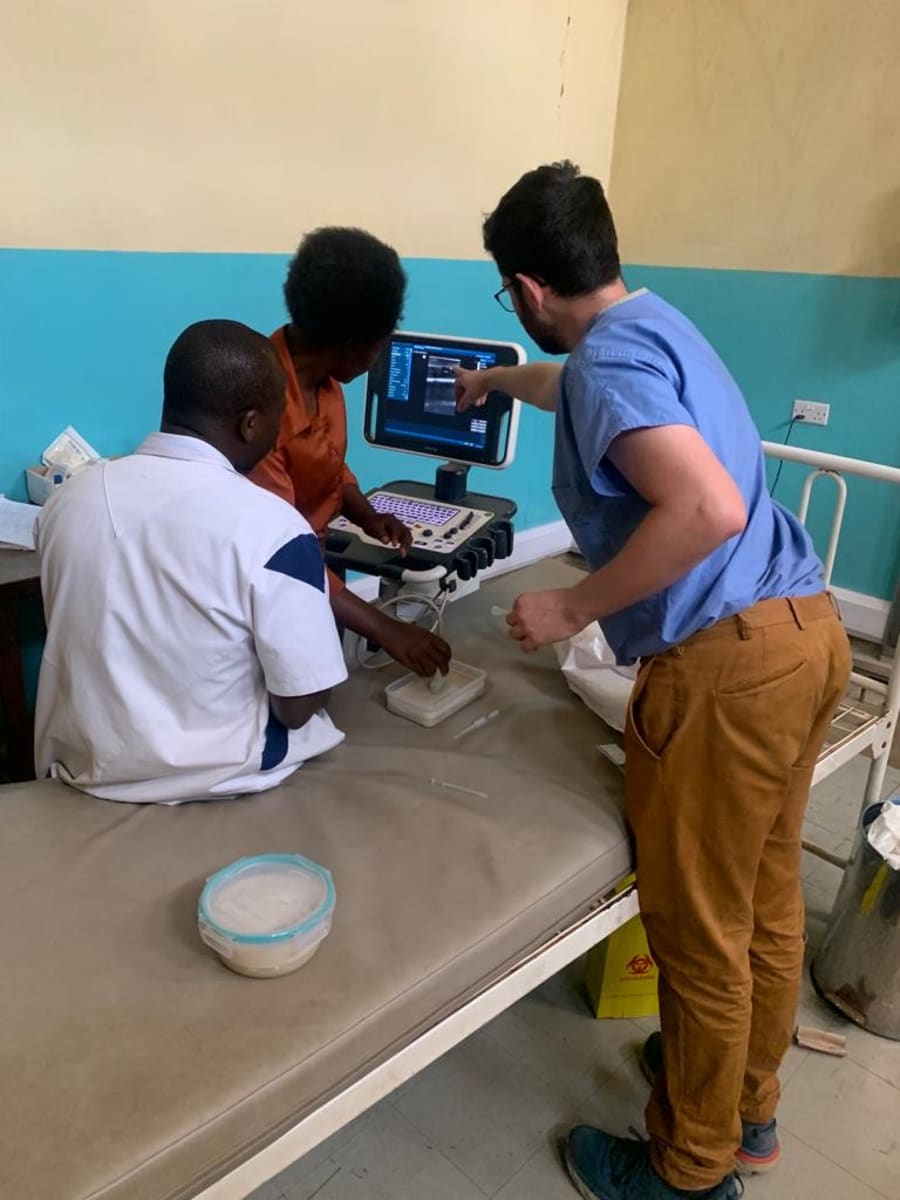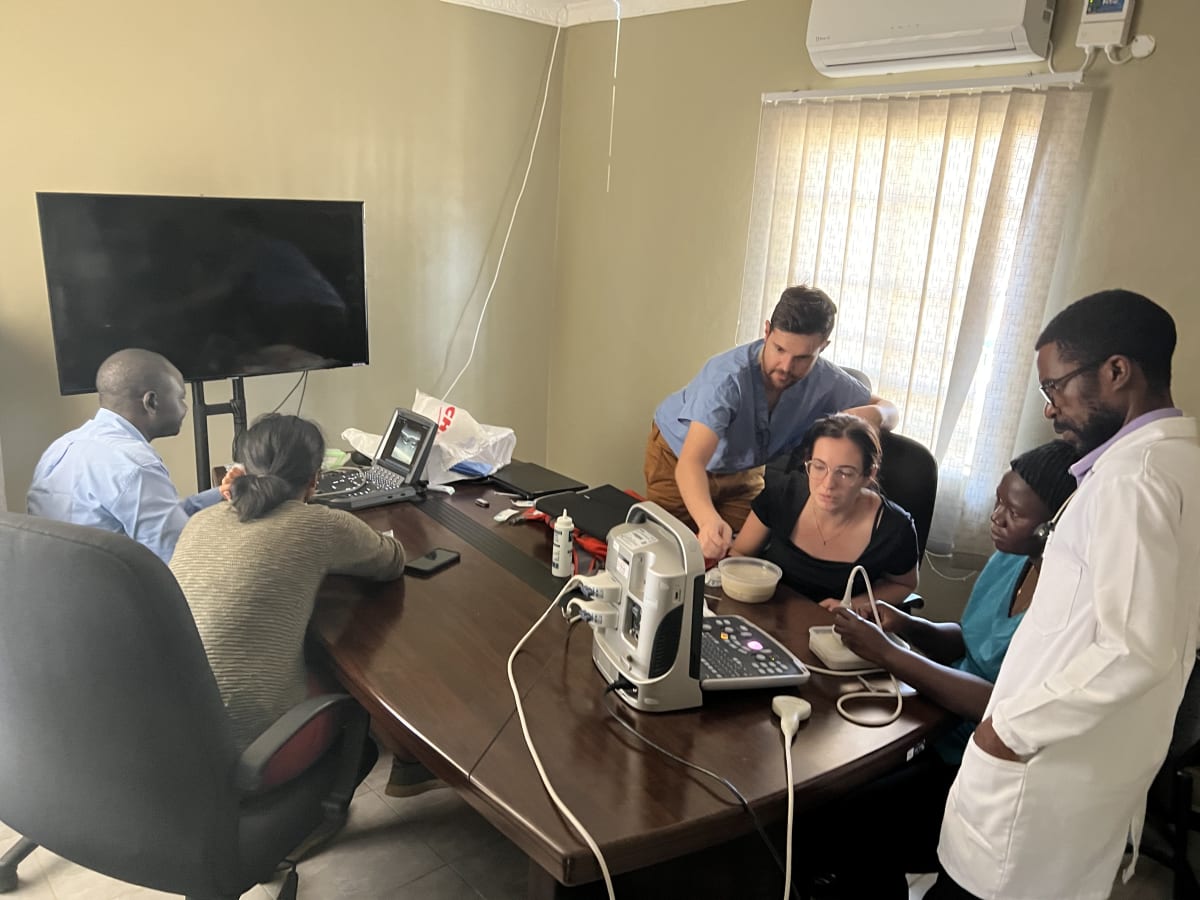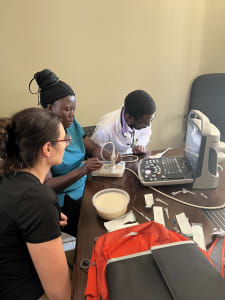What do you plan to do?
I plan to teach various forms of venous access to medical officers in pediatric oncology and pediatric surgery. These include: ultrasound guided peripheral venous access as well as ultrasound guided central venous access for both small and large French devices where guidewire manipulation is required. I also plan to teach the basics of finding appropriate vessels for access and tips for safe and successful access.
I plan to perform hands on demonstrations on venous access task simulators and help with the transition to patients. I will also educate the local physicians on construction of low cost phantoms/simulators so that they can continue to practice these skills after my departure.
How will it make a difference?
Medical staff at Kamuzu Central Hospital (KCH) and the KCH National Cancer Center in Lilongwe Malawi currently have very limited experience with ultrasound guided procedures. On the previous trip completed by my colleagues, ultrasound guided venous and vascular access was identified by the local physicians as a needed area of improvement. By teaching these techniques as well as demonstrating how to build and use low cost phantoms, we will better providers to gain essential access into the vascular system for delivery of medications in all patients, but most especially those with difficult access routes. i.e. children and oncologic patients..
Who will benefit from your project?
This project will target training the attending physicians and residents in pediatrics, pediatric oncology and pediatric surgery at Kamuzu Central Hospital. They will benefit from this project by learning valuable ultrasound skills that will help improve their practice and their patients. This project will also benefit the pediatric surgery and pediatric oncology patients at KCH and the adjacent National Cancer Center, who historically have routinely presented extreme challenges in obtaining regular and rapid venous and vascular access.
Why this population?
My home institution University of North Carolina Chapel Hill hospital has a well-established relationship with the Malawi Ministry of Health and KCH hospital in Lilongwe Malawi through UNC-Project Malawi. Collaboration between our institutions have existed since 1990. This collaboration has helped bring about many projects and will serve as a strong foundation for my project. This relationship also allows for strong longitudinal follow up to this project, to assess its efficacy in the months and years following this intervention and can serve as a template for other future point of care ultrasound projects. This strong partnership between my host institution and KCH allows me to better serve the people of Malawi.
What is the expected impact?
Ultrasound is a vital imaging technique for both diagnostic and interventions both in resource abundant and poor countries. Ultrasound at this point has mainly been used for diagnostic radiology at KCH. Teaching providers the basics of venous access can help to give providers the skills for not only venous access but serve as a foundation of knowledge for other ultrasound guided interventions which could be learned in the future.
How will learnings carry forward after you return?
UNC Global Radiology is strongly associated with the UNC diagnostic residency and there exists a global health pathway in which many of our residents both in diagnostic radiology and interventional radiology participate. Our Director has helped to build a pathway so that residents can visit KCH every year and build upon projects which have already started.






Upon my arrival at KCH in Lilongwe Malawi, I was greeted by the wonderful technicians, residents, and physicians working at the KCH radiology department. I was quickly integrated into the workflow of the department and could see why Malawi is known as the "warm heart of Africa". I then set out to construct a low cost gelatin based vascular access and biopsy simulator in my guest house kitchen which I had planned and attempted prior to travel. After its construction I set up didactic sessions with both the radiology and pediatric surgical residents. After a PowerPoint presentation on the indications, technique, and safe performance of both ultrasound guided targeted biopsy and venous access, the residents then got to practice their skills on the simulators. After a few attempts and side by side teaching both the residents and I saw improvement in their skills and confidence. Throughout my stay I was also able to teach CT, X-ray, and ultrasound interpretation skills to the radiology and surgical residents through various didactic sessions. I plan on also working with one of the radiology residents on creating a simulator for suprapubic tube placement using similar materials to help with her dissertation project. My time at KCH impacted me greatly. I had a great time working at KCH and learned a lot from the amazing clinicians and residents there.